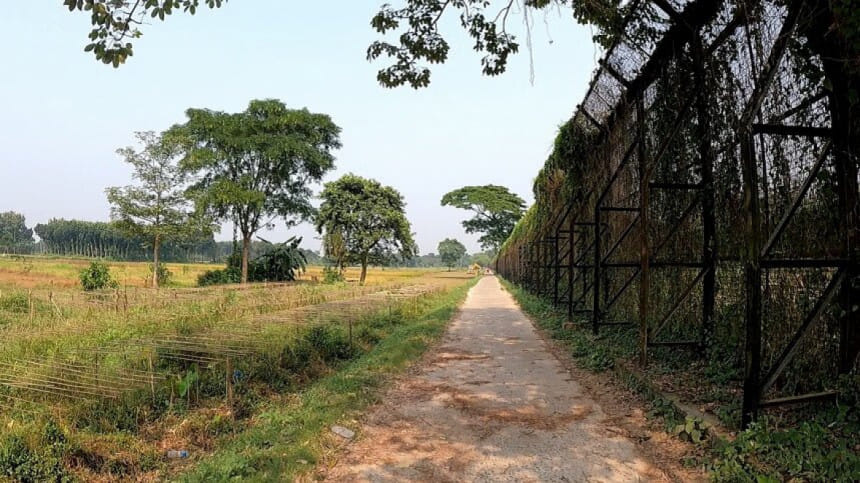A short trip back home amid World Cup catastrophe

Returning to one's country from abroad for only a few hours before journeying back to the same country may seem like a very odd proposition. But recently, a group of Bangladeshi journalists covering the World Cup in India, including this reporter, had to do exactly that in order to work around a condition in their visa.
The back-and-forth journey also gave the reporters some much needed respite from the mental and physical strain from covering what so far has been a disastrous World Cup campaign for Bangladesh.
Many Bangladeshi journalists, including this reporter, obtained a six-month multiple entry visa to cover the World Cup in India. One of the conditions of that visa was – 'The maximum permissible duration of each stay will be 30 days.'
But to cover all matches of the Bangladesh team in the World Cup, one would have to stay in India for at least a month and a half.
There are some processes available to extend this 30-day period. However, me and some other Bangladeshi journalists felt, as we are already in Kolkata which is quite near Bangladesh, why not make a quick stop back home instead.
After getting embarrassed at the hands of the Netherlands on Saturday, the Bangladesh team had no activities the next day. It was the ideal window for the brief detour.
So on Sunday, after getting some breakfast, the group hopped on the 7:40am local train at Sealdah and started our journey.
The electric locomotive completed the 130km journey in around two-and-a-half hours. The train stopped right at the Bangladesh border, with the Gede village in Nadia in this side and the town of Darshana, Chuadanga at the other.
The familiar sceneries of rural Bengal and breeze of the autumn morning greeted us, cleansing us off our weariness and giving us the energy to carry on with our journey.
Bangladesh has a deep connection with the Sealdah Station, both historically and emotionally. Before the partition, Sealdah was a communication hub in the undivided Bengal. Trains headed for Khulna, Goalando Ghat, Rajshahi and many such destinations in East Bengal would depart from the Sealdah Station.

More than 150 years ago, the first train line over present day Bangladesh was established on this very route. In 1862, trains started operating from West Bengal's Nadia to Jagati in East Bengal, introducing rail communication in the region.
The railroad is still in operation, but now, there are immigration formalities dividing it into two halves. People speaking the same language, sharing the same culture and bonded by blood have no choice but to accept this divide and live as citizens of two different nations.
Gede is a quiet, serene village in Nadia. It didn't take us too long to complete the immigration formalities. Seeing the accreditation cards hanging down from our neck, many approached us to chat about the World Cup. The people from West Bengal also seemed disappointed with Bangladesh's poor performance.

"Why are they playing like this?" they asked, and in reply we had nothing to offer other than our silence. Once we entered the Bangladeshi territory, the same questions were asked to us, but with more anger behind those.
From the immigration table to the roadside tea stall, people everywhere are trying to figure out the reason behind the utter failure of Shakib and his troops. Thankfully, the familiar ambiance of my homeland and my phone helped me avoid all things cricket for a few hours.
In Darshana, local journalist Rejaul Karim Liton was busy making our short stay as enjoyable as possible. After enjoying his hospitality for four hours, the group returned to immigration to re-enter India.
It didn't take too long to complete the formalities. Still, we missed our train by just two minutes. As the group was thinking about what to do next, another train arrived at the station. We got on it, and 40 minutes later we were in Ranaghat. From there, we had no trouble finding a train to Sealdah.
Anyone travelling in these parts is sure to notice the excellent communication system even in such a remote village in India. On Sunday, 18 trains departed from Gede in 24 hours, which is less than usual as Sunday is the weekly holiday in India.

The most surprising matter was the low cost of the ticket fare. The 130km train ride from Sealdah to Gede only cost INR 30. I knew about the low rate already, as I had travelled on this route before. But many of my co-travellers were surprised hearing about the low cost.
The people of the area are daily travelling long distances on trains. Back at home, people living in Munshiganj, which is just 50km away from Dhaka, or Manikganj, which is 60km away from the capital, can't even imagine going to Dhaka daily for a job. But here, people can travel about a 100km every day to attend office in Kolkata at a very affordable cost.
Just like the huge gulf in the performance of the Bangladesh and the Indian cricket teams, the differences in the communication systems on either side of the border is also a disparaging sight for a Bangladeshi.
After returning to Kolkata that night, we met the cricketers at a dinner hosted by the Bangladesh Deputy High Commission in India.
Skipper Shakib Al Hasan had openly talked about the loss of confidence in the team after the humiliation against the Dutch.
The fact that there are still three matches to go in the World Cup is seemingly burdensome for the Bangladesh team.
At the dinner, there was a definite attempt by all to lift some of the gloom. The cricketers were also trying to appear as normal. They casually chatted around for three hours. Even during this time, the BCB president and other board directors were asking around, searching for answers to the same questions: why is the team in such dire straits after coming here with dreams of playing in the semifinals? How can the entire team go out of form at the same time?
Shakib had already said that he doesn't have answers to these questions. If he did, the outcomes would've been different.

 For all latest news, follow The Daily Star's Google News channel.
For all latest news, follow The Daily Star's Google News channel. 









Comments